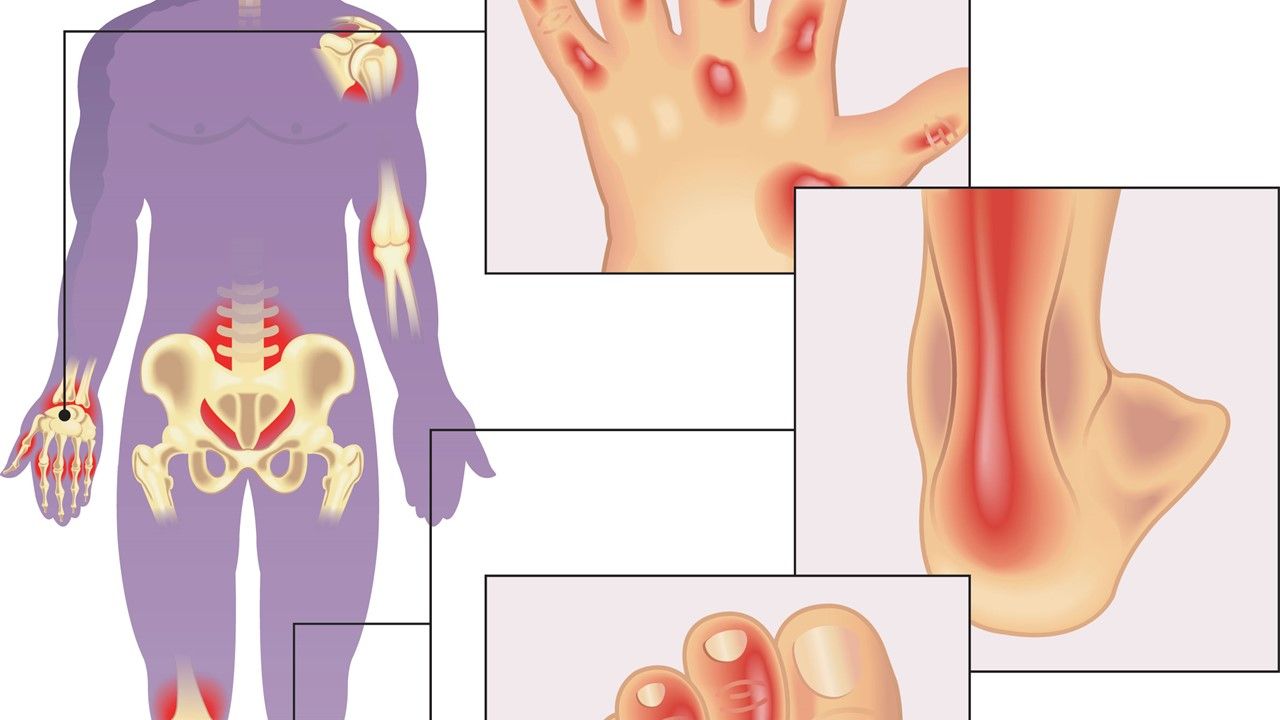Article
Apremilast Continues to Show Viability as Monotherapy
Psoriatic arthritis patients with moderate disease activity were more likely to reach treatment targets or low disease activity at week 52 with apremilast (Otezla, Celgene) than patients with high disease activity, researchers report in the January 7 issue of Arthritis Care and Research.
(©Rob3000,AdobeStock)

Psoriatic arthritis patients with moderate disease activity were more likely to reach treatment targets or low disease activity at week 52 with apremilast (Otezla, Celgene) than patients with high disease activity, researchers report in the January 7 issue of Arthritis Care and Research.
The study, by Philip J. Mease, M.D., of the Swedish Medical Center and the University of Washington School of Medicine in Seattle, included 494 patients with moderate and high disease activity. By week 52, 46.9 percent of patients with moderate disease and only 24.9 percent of patients with high disease activity at baseline achieved treatment targets by week 52. The improvements showed by week 16 in patients with moderate disease activity. Of 375 patients with low disease actvity or remission at week 52, "achieving targets with apremilast was associated with continuous disease activity improvements and no or mild arthritis and other PsA manifestations," the researchers wrote.
Apremilast was approved in 2014 by the U.S. Food and Drug Administration for active psoriatic arthritis and moderate to severe plaque psoriasis. In July, it received approval for the treatment of oral ulcers associated with Behçet’s disease.
Apremilast is an oral small molecule and phosphodiesterase 4 (PDE4) inhibitor. Other oral small molecules approved to treat psoriatic arthritis include methotrexate, sulfasalazine, leflunomide and cyclosporine. The American College of Rheumatology and the National Psoriasis Foundation recommend that it be added to current oral small molecule therapy over switching to apremilast monotherapy.
To date, most clinical trials on apremilast have been on apremilast as combination therapy, not as monotherapy as done in the Mease et al. report which is based on an analysis of the PALACE 1-3 studies. In May, Dr. Mease and colleages reported inArthritis Research and Therapythat apremilast maintained clinical benefit for up to 5 years in psoriatic arthritis patients. The study included 1,493 patients: 497 received apremilast 30 mg twice daily; 500 received apremilast 20 mg twice daily and 496 were assigned placebo. In that study, at week 260, 67.2 percent of patients achieved an ACR20 response; 44.4 and 27.4 percent achieved ACR50 and ACR70 responses, respectively.
Enthesitis and dactylitis were greatly improved (62.4 percet of patients achieved a Maastricht Ankylosing Spondylitis Enthesitis Score of 0 and 80.9 percent achieved a dactylitis count of 0, respectively). And, for patients with psoriasis, the presence of plaques reduced by 75 percent.
REFERENCE: Philip J. Mease, Dafna D. Gladman, Alexis Ogdie, et al. "Treatment to Target in Psoriatic Arthritis with Apremilast: Probability of Achieving Targets and Comprehensive Control of Disease Manifestations," Arthritis Care and Research. First published Jan. 2, 2020.https://doi.org/10.1002/acr.24134




